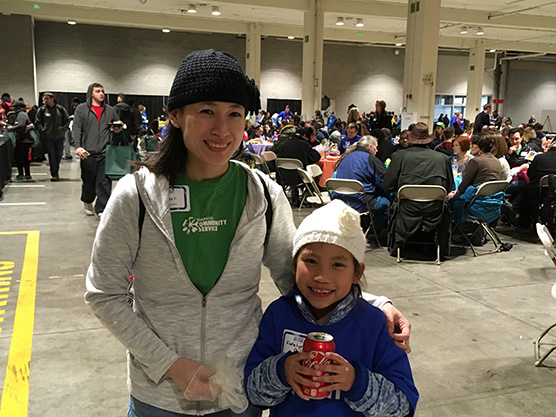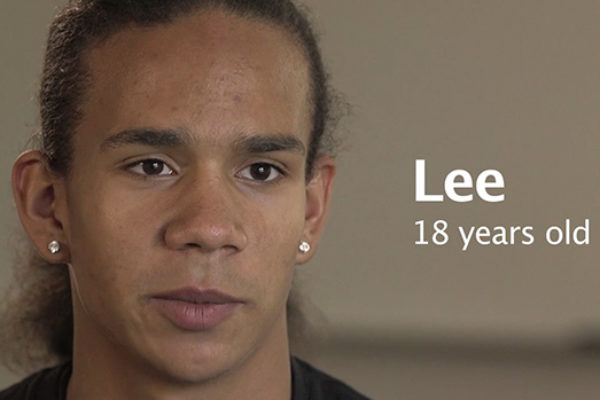How To Talk Homelessness With Your Kids
Let’s talk homelessness, this time with kids. Um…wait, what?
With homelessness so visible in King County, we hear a lot of people asking how to talk about it with their kids. How to say the words just right. How to explain such a big, messy issue to little ears that are so innocent. And with our All-Star Softball Classic around the corner, it’s perfect timing. You asked, we answered with these five tips.
1. Be aware that your actions speak before you do.
While you may be trying to make sure you have the right words, your kids are already picking up on how you behave when you interact with people who are homeless. The person at the off ramp with a sign…do you lock the door? Groan? Look the other way? Give a smile or nod? Your kids notice all of this.
2. Be straight when you talk homelessness.
For younger kids who are asking about homelessness when they see it for the first time, their curiosity is genuine and refreshingly without judgment. Your answer should have those same traits. “Why is that man sleeping outside?” He doesn’t have a home. “Where is his mommy?” I don’t know, but he might not have any friends or family who can help him.” Keep your answers short and answer their question in the same straight-forward way it was asked.
3. Model empathy.
Help your older children and teens understand that being homeless adds a complexity to the everyday things we do. Getting a good night’s rest, having easy access to a shower and finding a place to recharge your devices are hard when you don’t have a home. Your kids may have classmates who are homeless and it’s important they know that homelessness doesn’t define a person, but it does impact their life every day.
4. Get them involved.
Volunteering as a family is a great way to model empathy and talk homelessness within your family time. For tweens and teens, being in a physical space where people are working together to help others—serving a meal, handing out food at a food bank—can be powerful.
Little ones can help too. Head to the store and have your kids pick out the warmest, fuzziest socks, their favorite granola bars or the best-smelling shampoo. Then keep those in care packages in your car for when the occasion arises and you see someone in need.
Bonus: Ask your kids to find 3 toys and books they’ve outgrown, and give them to a shelter that serves homeless families. We call it de-cluttering for a cause. Even a toddler will feel proud to give a stuffed bunny to a kid experiencing homelessness, a kid who feels scared and doesn’t have a snuggly stuffed friend to make them feel better. It brings it closer to their own reality, which leads to empathy. That’s miniature empowerment right there. Going with you to deliver the items then makes it all tangible. They might not have all the words yet, but their minds are reeling and the feelings will last.
5. Don’t use fear.
Talk homelessness, not house rules. This is not the time to try to encourage other behaviors you’re seeking from your children. Saying things like “that’s why you should do your homework, so you don’t end up homeless” isn’t opportunistic parenting. It actually disrespects people who are homeless by avoiding an honest dialogue. Plus, that’s just bad karma. Many, many people are one event—like losing a job or paying for a sudden medical emergency—away from losing their housing.
Some other things to remember:
- Homeless is a situation, not a label. Even the semantics of “people who are homeless” vs. “homeless people” make a difference.
- Giving money is a personal choice. If you want to give cash to someone on the street, do it. If you prefer, carry coffee cards or other gift cards that might allow for a warm meal and a dry place to enjoy it. If you decide to give neither, you can use it as a chance to talk with your older kids about the other giving you do—both of your time and money. Your conversation will carry further than you’d like.
Because you’re taking the time to read this already shows that you care. Check your own knowledge of the current state of homelessness with this short quiz and stay up on the latest with us on Facebook. And check out these 5 ways to teach your kids to care about their community.
“They don’t really look homeless. They seem just like you and me.” ~ 10-year-old girl volunteering with her family. Dad: “That’s because they are.”





Comments
OFHSoupKitchen
May 28, 2024Thank you for sharing this. It will be an excellent guide for everyone wanting to share how to do good deeds with the kids.